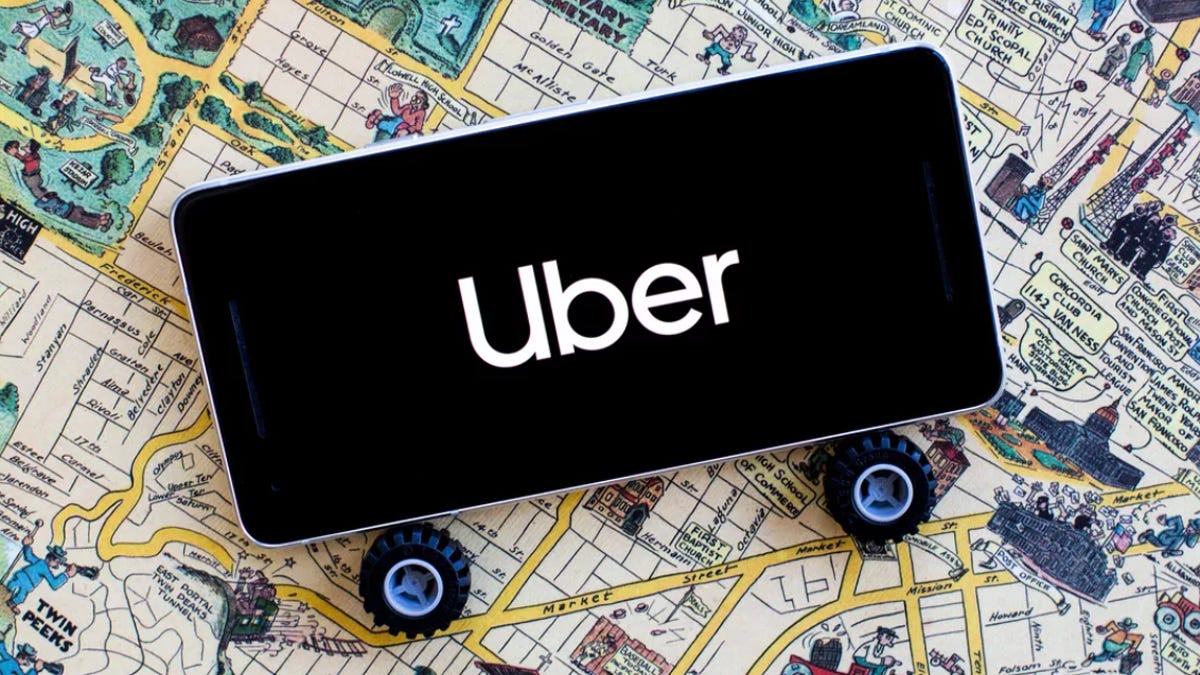Uber will reopen San Francisco office amid COVID-19, but with far fewer people
The ride-hailing company says it's to help employees who don't want to work at home.

Uber's starting to open its offices.
Uber will reopen its San Francisco headquarters to staff for the first time since March, in response to some employees who said they'd like the option to work away from home.
In an email to employees Wednesday, the company said that starting Nov. 12, it will begin allowing employees to use the office as long as the city allows, though it's capping capacity at around 10%, or about 250 employees. The company told employees they can work from home until at least July 2021.
"The biggest message is safety first," said Michael Huaco, Uber's vice president of workplace, overseeing the company's real estate. "
Uber's reopening offers a window into how large tech companies are navigating the coronavirus pandemic that's infected more than 48.9 million people worldwide since it was first detected late last year, and killed more than 1.2 million people. Tech company employees, like many other white-collar workers, have been forced to work from home or change their work arrangements in order to take care of children and family.
Some state, county, and city governments have lifted health-related restrictions, but many office workers have opted to continue working from home. Tech companies such as Facebook and Google themselves have steadily pushed back their plans for broad office reopenings too, which for some was earlier this summer.
Uber's partially reopened 60% of its corporate offices around the world, including in New York, Washington DC and London. It's opened and then closed some offices too, as virus cases rise, particularly in Amsterdam and London.
Ride-hailing drivers were on the ballot in California this year.
It's also kept its ride-hailing and Uber Eats food delivery services running, which have been considered essential services during the pandemic. Uber has provided some personal protective equipment to drivers and given small payments to workers who've been exposed or infected with COVID-19. But because drivers and couriers aren't employees of the company, they don't have the same types of protections as Uber's corporate staff. At least six Uber drivers are known to have died from COVID-19.
While Uber's office plans largely don't affect the millions of drivers on its service, the staffing shift for the headquarters does come after a protracted fight about how they're recognized by the company. On Tuesday, Uber along with Lyft and other gig economy companies won their effort to have California voters pass Proposition 22, a ballot measure they authored that exempts them from a state law requiring the companies to treat contract workers as employees similar to their corporate staff. The consortium spent $205 million on the ballot measure.
"California voters agreed that instead of eliminating independent work, we should make it better," an Uber spokesman said in a statement Wednesday.
See also: Uber vs. Lyft: We compare the two ride-hailing apps
Uber's also still fighting to find profit in its business, reporting $1.1 billion in losses between June and Sept. Its Uber Eats food delivery service has grown 82% so far this year, reaching $8.5 billion in revenue as of Sept. 30.
The company's offices in Silicon Valley, south of San Francisco, and around the Bay Area remain closed for now, as Uber follows health protocols and recommendations from the county and city governments.
But Uber said its internal surveys showed 68% of its employees want a "hybrid work arrangement," effectively working from home a couple days per week.
"Maybe their work at home situation isn't great, or they're just done with it and they have cabin fever," Huaco said.
Food delivery services like Uber Eats and Doordash have become more popular during the pandemic.
New rules
Before employees return to offices, Uber said they'll have to take virtual training, during which they'll be taught new health protocols, including a daily health screening and temperature check at home.
When employees actually walk into Uber's San Francisco offices, they'll be working in a different environment than they did before lockdowns began. The company has separated desks by at least six feet, and face coverings are required. Uber will also expect employees to wipe down areas, including their desks. And, for now, employees will be able to work outside thanks to San Francisco's temperate climate.
There also won't be any snacks, to avoid the risk of touching food other people have touched. Drinking water will come out of boxed cartons. And lunches will be prepackaged.
For some people, though, all those efforts may not be enough. They could potentially catch the virus from asymptomatic co-workers. Or they could get infected while commuting on a bus or subway.
Huaco said the company's talked regularly with employees about health and safety over the past few months, and he believes employees know the stakes.
"There's only so much we can do," he said, which is part of why this program is voluntary. "Everyone understands the need for safety."
CNET's Dara Kerr contributed to this report.

